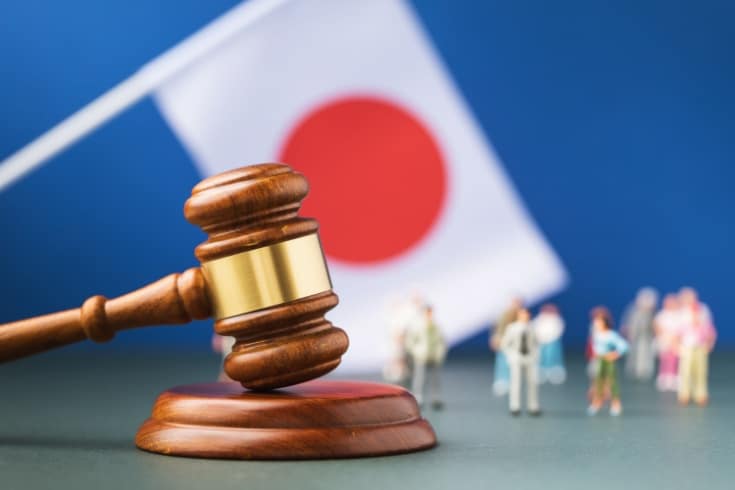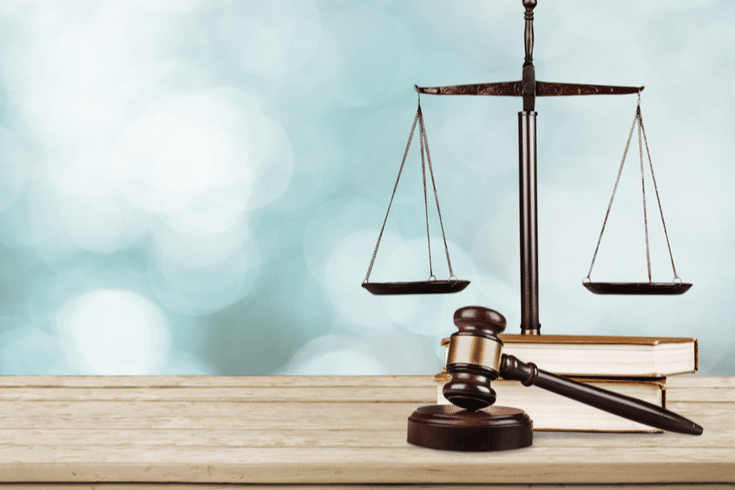Key Points of the Unfair Competition Prevention Act Amendments Enforced in April Reiwa 6 (2024): Essential Changes You Need to Know

“Products identical to those developed by our company are circulating in the market,” “Our corporate trade secrets are being stolen.” In the competitive landscape between companies, if such unfair practices are left unchecked, we cannot hope for the healthy development of an economic society. Therefore, the Japanese Unfair Competition Prevention Act (不正競争防止法) has been established to ensure fair business practices among entrepreneurs and to prevent excessive competition by securing the proper implementation of fair competition.
In June of Reiwa 5 (2023), the Act Partially Amending the Japanese Unfair Competition Prevention Act and Other Related Laws was enacted, which revised parts of the Japanese Trademark Law (商標法) and the Japanese Design Law (意匠法), among others, and came into effect in April of Reiwa 6 (2024). Due to this amendment, there are more points to be cautious about in practice, so it is important to understand the purpose of the amendments and the details of the changes.
This article will explain the amendments to the Japanese Unfair Competition Prevention Act and the points that should be known in practice.
Overview of the Unfair Competition Prevention Act Amendments in Reiwa 5 (2023)
In June 2023, the “Act Partially Amending the Unfair Competition Prevention Act and Other Acts” was enacted, revising parts of the Japanese Unfair Competition Prevention Act (Unfair Competition Prevention Law) as well as the Japanese Trademark Law, Japanese Design Law, and Japanese Patent Law.
The amendment aims primarily to strengthen the protection of brands and designs in response to the diversification of business activities brought about by digitalization. It was promulgated on June 14, 2023, and came into effect on April 1, 2024.
While this article focuses on the Unfair Competition Prevention Law, please refer to the related article for an explanation of the amendments to the Trademark Law and Design Law.
Related article: 【Enforcement in April of Reiwa 6 (2024)】Key Points of Trademark Law & Design Law Amendments? Explaining the Changes You Need to Know[ja]
The Unfair Competition Prevention Law amendments in Reiwa 5 (2023) include revisions to the following provisions:
- Prevention of imitation activities in the digital space
- The consent system and its exceptions
- Clarification of the scope of protection for limited provision data
- Expansion of the presumptive provisions related to the use of trade secrets
- Establishment of international jurisdiction provisions and clarification of the scope of application of Japanese law
- Expansion of the provisions for calculating the amount of damages
- Increased statutory penalties for bribery of foreign public officials
- Expansion of the scope of punishment for bribery of foreign public officials
This amendment is primarily aimed at developing legal systems in response to recent digitalization and internationalization. This article will focus on explaining the main items.
Reference article: Ministry of Economy, Trade and Industry | Recent Amendments to the Unfair Competition Prevention Law (Reiwa 5)[ja]
Preventing Imitation in the Digital Space

The Japanese Unfair Competition Prevention Act (不正競争防止法) regulates acts of transferring products that imitate the form of another person’s goods as unfair competition (Article 2, Paragraph 1, Item 3), thereby protecting the design of products. However, with the increase in transactions in the digital space, there has been a need to address instances of imitation on the internet. Consequently, provisions have been established to further strengthen the protection of brands and designs and to prevent imitation in the digital space. We will explain the content of the revisions, taking into account the background of the amendments.
Previous Provisions and the Background for the Amendments
Under the Unfair Competition Prevention Act, the act of transferring products that imitate the form of another person’s goods is regulated as an act of unfair competition.
Article 2: For the purposes of this Act, “unfair competition” refers to the following:
Unfair Competition Prevention Act | e-Gov Law Search[ja]
3. The act of transferring, lending, displaying for the purpose of transfer or lending, exporting, or importing products that imitate the form of another person’s goods (excluding forms essential for ensuring the function of the said goods).
With the development of digitalization, such as the increase in transactions in metaverse spaces, opportunities to handle intellectual property in digital spaces, as well as in the physical world, have increased.
However, the traditional target of imitation acts presupposes tangible objects. The following amendments have been made to address the current situation where imitation acts can also occur in the digital space.
Acts Provided via Networks Also Considered Unfair Competition
The amendment in Reiwa 5 (2023) to Article 2, Paragraph 1, Item 3 is as follows:
Article 2: For the purposes of this Act, “unfair competition” refers to the following:
3. The act of transferring, lending, displaying for the purpose of transfer or lending, exporting, importing, or providing through telecommunication lines products that imitate the form of another person’s goods (excluding forms essential for ensuring the function of the said goods).
Prior to the amendment, acts presupposing tangible objects such as “transferring” or “lending” were listed as unfair competition. With the amendment, “providing through telecommunication lines” has been added as an act of unfair competition.
As a result, the provision of imitation products through networks is now recognized as an act of unfair competition.
Expansion of the Scope of Protection for Limited Provision Data

In recent years, there have been notable cases of former employees and contractors illicitly taking customer information and technical data, which are considered trade secrets. Such acts of taking this information are likely to be in violation of the Japanese Unfair Competition Prevention Act (不正競争防止法). The Act protects ‘trade secrets’ and ‘limited provision data,’ and the recent amendments have clarified the scope of this protection. We will explain the rationale behind the amendments and discuss the details of the changes while providing an overview of the law prior to the amendment.
What is a Trade Secret?
The definition of a “trade secret” is stipulated in Article 2, Paragraph 6 of the Japanese Unfair Competition Prevention Act (不正競争防止法). Trade secrets can include a company’s financial information, customer lists, procurement prices, claim information, and vary depending on the type of business.
Unfair Competition Prevention Act Article 2
Unfair Competition Prevention Act | e-Gov Law Search[ja]
6. In this Act, “trade secret” means technical or business information useful for business activities, such as production methods and sales methods, that is managed as a secret and is not publicly known.
In other words, information that qualifies as a trade secret must meet the following criteria:
- Secrecy
- Utility
- Not being publicly known
If the information does not satisfy all three of these criteria, it cannot be called a trade secret.
Previous Regulatory Content
The Japanese Unfair Competition Prevention Act (不正競争防止法) not only protects trade secrets but also stipulates the protection of “Limited Provision Data.”
Article 2, Paragraph 7 of the Unfair Competition Prevention Act
Unfair Competition Prevention Act | e-Gov Law Search[ja]
For the purposes of this Act, “Limited Provision Data” refers to technical or business information that is electronically (by electronic, magnetic, or other means not perceptible to the senses, the same shall apply in the following paragraph) accumulated in substantial volume and managed, provided to specific persons as part of a business, excluding information that is managed as a secret.
The requirement that the information must not be “managed as a secret” is stipulated to avoid overlapping protection with trade secrets.
Adapting to the Diversification of Business, Including Digitalization
Prior to the 2023 (Reiwa 5) amendment, the provisions were considered to prevent overlap between the protection of trade secrets and limited provision data. However, it was pointed out that there were gaps in protection under the previous provisions.
In other words, as shown in Image 1, information that is ‘managed as a secret’ but ‘publicly known’ is not protected under either the trade secret or the limited provision data system.

Source: Unfair Competition Prevention Committee | Considering the Unfair Competition Prevention Law in Light of the Diversification of Business Due to Digitalization[ja]
Therefore, Article 2, Paragraph 7 of the Unfair Competition Prevention Law was amended in 2023 (Reiwa 5) as follows:
Unfair Competition Prevention Law Article 2
Unfair Competition Prevention Law | e-Gov Law Search[ja]
7 In this law, “limited provision data” refers to technical or business information (excluding trade secrets) that is electronically accumulated in a considerable amount and managed for the purpose of providing to specific parties as part of a business.
The previous requirement that excluded ‘information managed as a secret’ has been revised to exclude ‘trade secrets.’ This amendment is key in closing the gaps in protection.
Expansion of Presumption Provisions Regarding the Use of Trade Secrets
Trade secrets that have been misappropriated are often suspected of being used by competitors, such as the new employer of a former employee. However, proving the actual use of trade secrets within a company has been extremely difficult. With the recent amendment, if a trade secret accessed by a former employee or a contractor is leaked, and there is no evidence to the contrary, it will be presumed that the organization that acquired it improperly has used it.
Let’s review the background and the content of the amendment.
Previous Provisions
Acts of unfair competition as defined by the Japanese Unfair Competition Prevention Act (Article 2, Paragraph 1, Items 4 to 9) include the following:
- Acquisition
- Use
- Disclosure
Among these acts of unfair competition, proving the ‘use’ of trade secrets has been pointed out as particularly difficult. This is because the act of using information typically occurs within the infringer’s organization, making it hard to detect from the outside.
Therefore, the Unfair Competition Prevention Act has established provisions that allow for the presumption that the infringer has used the trade secrets if the victim can prove certain matters.
(Presumption of the act of using technical secrets acquired)
Japanese Unfair Competition Prevention Act | e-Gov Law Search[ja]
Article 5-2: In cases where unfair competition as listed in Article 2, Paragraph 1, Items 4, 5, or 8 (limited to acts of acquiring trade secrets) has occurred, and the perpetrator has produced goods or engaged in other acts that clearly indicate the use of the technical secrets as prescribed by Cabinet Order (hereinafter referred to as “production, etc.”), it shall be presumed that the perpetrator has engaged in the production, etc., as an act of unfair competition (limited to the use of trade secrets) as listed in the respective items.
This is what is referred to as the presumption provisions regarding the use of trade secrets.
Application of Presumption Provisions to Legitimate Acquisition Types and Good Faith Acquisition Types at the Time of Transfer
There was a challenge that the presumption provisions regarding use could only be applied to some types of trade secret infringement.
The Japanese Unfair Competition Prevention Act defines the following four types of trade secret infringement:
- Unauthorized misappropriation type (Article 2, Paragraph 1, Item 4)
- Malicious or grossly negligent acquisition at the time of transfer type (same paragraph, Items 5 and 8)
- Authorized legitimate acquisition type (same paragraph, Item 7)
- Good faith without negligence acquisition at the time of transfer type (same paragraph, Items 6 and 9)
The presumption provisions regarding use were only applicable to ‘1. Unauthorized misappropriation type’ and ‘2. Malicious or grossly negligent acquisition at the time of transfer type’.
Therefore, with the amendment in Reiwa 5 (2023), the provisions have been expanded to also apply to ‘3. Authorized legitimate acquisition type’ and ‘4. Good faith without negligence acquisition at the time of transfer type’.
The scope of unfair competition acts to which the presumption provisions regarding use apply has been broadened.
Establishment of International Jurisdiction Provisions and Clarification of the Scope of Japanese Law Application

When trade secrets are leaked abroad, the victim may initiate civil litigation against a foreign company for injunctions and damages. In such cases, the issues arise whether Japanese courts have the authority to make a judgment (international jurisdiction) and whether Japanese Unfair Competition Prevention Law (the applicable law) should be applied. Previously, these were unclear, but the recent amendments have clarified them.
Previous Provisions and Issues
Previously, international jurisdiction was governed by Article 3-3, Paragraph 8 of the Civil Procedure Code, and the applicable law was determined by Article 17 of the General Provisions of the Civil Code.
However, both provisions left the interpretation of the location of the incident to be determined on a case-by-case basis, leaving the international jurisdiction and applicable law for trade secret infringement actions unclear.
Granting International Jurisdiction to Japanese Courts
The 2023 (Reiwa 5) amendment has clarified the rules concerning international jurisdiction and the applicable law for trade secret infringement actions.
(Jurisdiction over Trade Secret-Related Claims)
Article 19-2: A claim against a person who has committed an act of unfair competition as listed in Article 2, Paragraph 1, Items 4, 5, 7, or 8, concerning a trade secret held by a business operator conducting business in Japan and managed within Japan, may be filed in Japanese courts. However, this does not apply if the trade secret in question is exclusively used for business purposes outside of Japan.(Scope of Application)
Japanese Unfair Competition Prevention Law | e-Gov Law Search[ja]
Article 19-3: The provisions of Chapters 1, 2, and this Chapter shall also apply to cases where unfair competition as listed in Article 2, Paragraph 1, Items 4, 5, 7, or 8 is committed outside of Japan concerning a trade secret held by a business operator conducting business in Japan and managed within Japan. However, this does not apply if the trade secret in question is exclusively used for business purposes outside of Japan.
Japanese courts have been granted international jurisdiction, and the requirements for the application of the Japanese Unfair Competition Prevention Law have been established.
The requirements are as follows:
- The trade secret belongs to a business operator conducting business within Japan.
- The trade secret is managed within Japan.
Naturally, Japanese companies would benefit from litigating in Japanese courts under Japanese law, so it is essential to understand the provisions of international jurisdiction and applicable law when conducting business.
Summary: Consult Experts for Compliance with the Revised Unfair Competition Prevention Act
The 2023 (Reiwa 5) amendment to the Japanese Unfair Competition Prevention Act has been implemented, focusing on the enhancement of brand and design protection as well as the strengthening of trade secret protection, in light of recent digitalization.
With the establishment of provisions to prevent imitation activities in the digital space, the patterns for protecting your company’s products have expanded. As the deployment of products in the digital space becomes more active, it is crucial to consider a broad protection strategy, taking into account the potential protection offered by other intellectual property laws (such as the Japanese Trademark Law and the Japanese Design Law).
The expansion of presumptive provisions related to the use of trade secrets means that companies accepting new employees from other firms will be required to implement stronger measures regarding the import of information.
Strategies for the protection of intellectual property can have a significant impact on your company, for better or worse, thus prompt and reliable action is essential. If you are concerned about the content of the amendments, we recommend seeking advice from experts.
Guidance on Measures by Our Firm
Monolith Law Office is a law firm with high expertise in both IT, particularly the internet, and legal matters. In recent years, intellectual property rights have garnered significant attention. Our firm provides solutions related to intellectual property. Details are provided in the article below.
Areas of Practice at Monolith Law Office: IT & Intellectual Property Legal Services for Various Companies[ja]
Category: General Corporate
Tag: General CorporateIPO





















